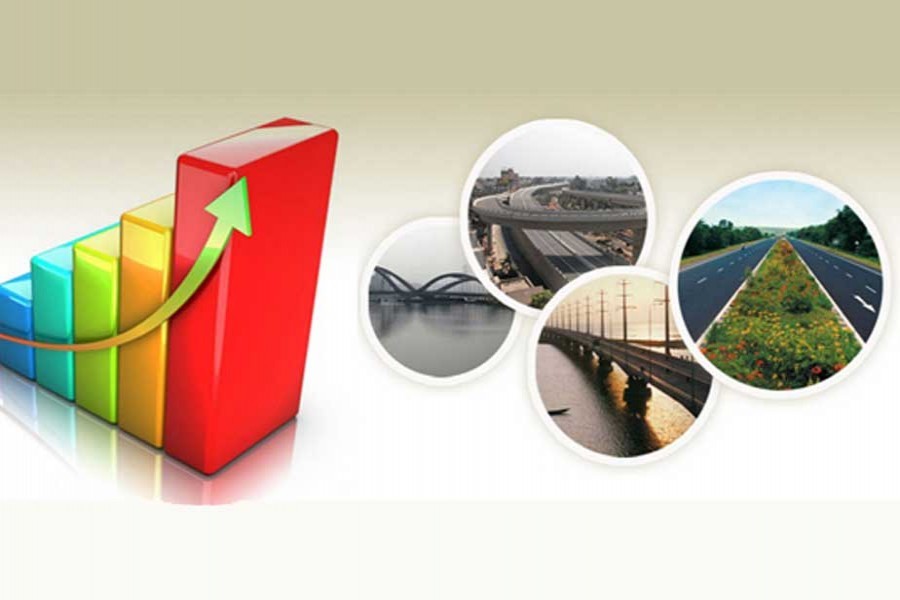
Published :
Updated :

Today's youths will be quite old and children past their middle age when Bangladesh completes 100 years of its independence. That also means the next 50 years belong to around 50 per cent of the Bangladeshis.
Their journey coincides with the country's transition to a stage when they may ask both: "…what your country can do for you or … what you can do for your country" [Poet Kahlil Gibran's saying quoted in the 1961 inaugural speech by US President John F Kennedy].
The moment Bangladesh celebrates its Golden Jubilee those living now may set their sight at the nation's destination a century after the 1971 generation had liberated the country.
How do the generations to come want to make all the difference and where would they take the nation to, by 2071? Anyone would ask what the senior citizens would offer to help the youth dream of a sound future.
Such questions may arise with an apprehension of a disconnect message, between now and then, between the celebrations without understanding concerns and the futuristic focus.
Before being handicapped by thinking of limitations, people need to dream of the unknown big, break the known barriers, and show audacity to pursue the ambition. The goals may be set simply logically, still realistically.
The 8th most populous country in the world, Bangladesh may fairly be placed among the top 10 economies and a great power of knowledge and technology by another half a century.
Instead of rejecting outright such hypotheses, some serious efforts need to be employed to explore how Bangladesh can emerge as one of the advanced powers in the comity of the nations by or before the centennial.
The uncertainty in areas like trade arising out of Bangladesh's graduation from the least developed country category should not stop the leaders and the public alike from setting high standards for the posterity. There are promises if one sees.
Quality education, research, technological underpinnings, innovations and excellence in products and higher productivity can be the tools to become not just prosperous but also a stable nation.
Any aim, for example, to win half a dozen Nobel prizes in literature, science and economic sciences may be termed an illusion, but national drive for winning global recognition may result in unthinkable progress in national life and the nation's standing worldwide.
Will it be too much to expect if we insist Bangladesh deserves at least a few world class universities and hospitals in the coming decades?
When the country is out of the shadow of famine, the youth won't be constrained by complacency of achievements within a generation. Rather, they would love to see that opportunities won't elude each of them suitable for certain job.
A young entrepreneur may want to become successful. The next generation may learn from failure and work wonder.
Freedom from fear, anxiety, stress, and social cohesion may help make ourselves as a happier nation, happiness that betrayed nations around the world when they tried mainly to become rich and militarily powerful.
It won't be too ambitious if we hope rules of the game will be complied with and institutions function much before 2071. None expects the world to be a paradise soon but an atmosphere to solve problems can assure that generations need not waste their potential on silly matters.
The liberty to act can help turn individuals into confident and responsible citizens. They can't afford either to forget that Bangladeshis have waited for long for building a harmonious nation with pluralistic views.
It is expected that the Bangladesh people will win the virtual world, and utilise robots for human benefits, overcoming the monopoly and monotony of any technology. What is essential is their readiness.
We've no idea if the stakeholders of the next 50 years can be prepared to excel in diverse areas outstripping attainments of the previous half a century within their lifetime.


 For all latest news, follow The Financial Express Google News channel.
For all latest news, follow The Financial Express Google News channel.